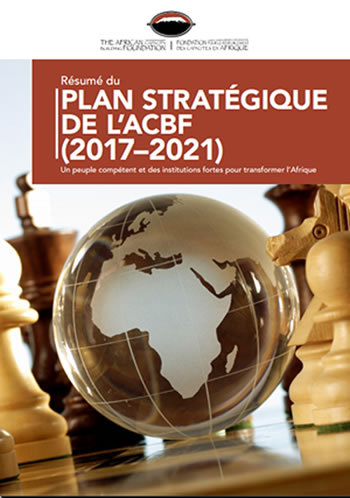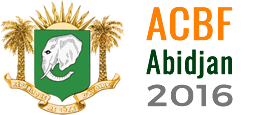The ACBF strategy for 2017-2021

Most African countries have engaged deep reforms towards transformation of their economies through the domestication of Agenda 2063 especially its first 10-year Plan and the Sustainable Development Goals (SDGs). Capacity is a defining factor of success in the implementation of these agendas. Capacity development is a defining parameter for a successful implementation of this continental development agenda, to be delivered through a national and continental architecture comprising countries, regional and continental institutions.
To respond to the continent’s capacity development requirements over the next five years, President Alassane Ouattara and the Government of Côte d’Ivoire in cooperation with the African Development Bank will host on 30 June – 01 July 2016 at the Hôtel Ivoire in Abidjan, the launch of the African Capacity Building Foundation (ACBF)’s Strategy for the period 2017-2021 and the 25th Regular Meeting of the ACBF Board of Governors. The Conference will include a Donor Pledging Session and will attract African governments and the continent’s development partners.
The ACBF Strategy 2017-2021 is anchored on the Foundation’s vision of an Africa Capable of Achieving its Own Development, and aims to produce skilled people and strong institutions that will transform Africa. The Strategy builds on the experience accumulated and the lessons learned by the Foundation over the past 25 years as a leading institution in capacity building and its deep rooting in Africa’s development realities.
AFRICA’S EVOLVING CAPACITY DEVELOPMENT LANDSCAPE
Despite good progress since the turn of the century, capacity deficits remain a major challenge facing African countries in their quest for sustainable development. Those deficits continue to prevent them from implementing their development strategies and policies and from achieving their desired development outcomes. According to the Africa Capacity Report 2015, produced by the African Capacity Building Foundation (ACBF), weak capacity in its various dimensions is still a problem of the continent. Indeed, ACBF’s consultations with a broad cross-section of African governments, private sector, civil society, and development partners show that capacity constraints are most visible in addressing the continent’s major problems.
According to the 2015 Africa Capacity Index, 73% of 45 African countries have medium capacity and 9% have low capacity, while only 18% have high capacity. An ACBF study on the capacities needed to implement the African Union’s Agenda 2063 shows serious gaps in critical technical skills to implement the Agenda’s first 10-year plan. For instance, Africa could have a projected gap of as many as 4.3 million engineers and 1.6 million agricultural scientists and researchers. The study also shows that leadership capacity is particularly important for implementing global, continental, and national strategies—but that it is woefully lacking across the continent. Without an urgent and concerted effort to address this conundrum, Africa will not achieve the Sustainable Development Goals, Agenda 2063, or national development strategies.
Other impediments to achieving the continent’s long-term strategic goals and realizing the ambitious targets in Agenda 2063 include the lack of a systematic approach to creating, using, and retaining capacity. Such an approach would encompass individual, institutional and organizational capacity and an enabling policy, legal, and regulatory environment.
To address this challenge in the next five years, ACBF proposes to build on its strong track record of achievement as the leader in capacity development—and to intensify, in its Strategy for 2017–2021, efforts to fulfill its vision of “an Africa capable of achieving its own development.” For this, ACBF would accelerate and scale up:
• Developing critical technical skills—emphasizing in equal measure, capacity development, capacity
retention, and capacity utilization.
• Building key institutions of development—to ensure greater effectiveness, implementation, and
sustainability.
• Developing leadership capacity and changing the mindset—to implement global, continental, and
national strategies.
ACBF’s Strategy for 2017–2021 builds on the experience it has accumulated and the lessons it has learned over the past 25 years as a leading institution for capacity building. As a pan-African organization, ACBF must continue its journey of moving beyond “simply” providing grants to durably establish itself as a trusted advisor, facilitator, and broker to support capacity development in Africa. The Foundation will realize this strategic aspiration by providing substantive advisory and capacity development services. This constitutes a major shift from ACBF’s being perceived mostly as a “go-to place for funding” to being the “go-to place for capacity development support.”
DOWNLOAD ALL DOCUMENT
Follow us on twitter
Tweets sur #acbfabj16

